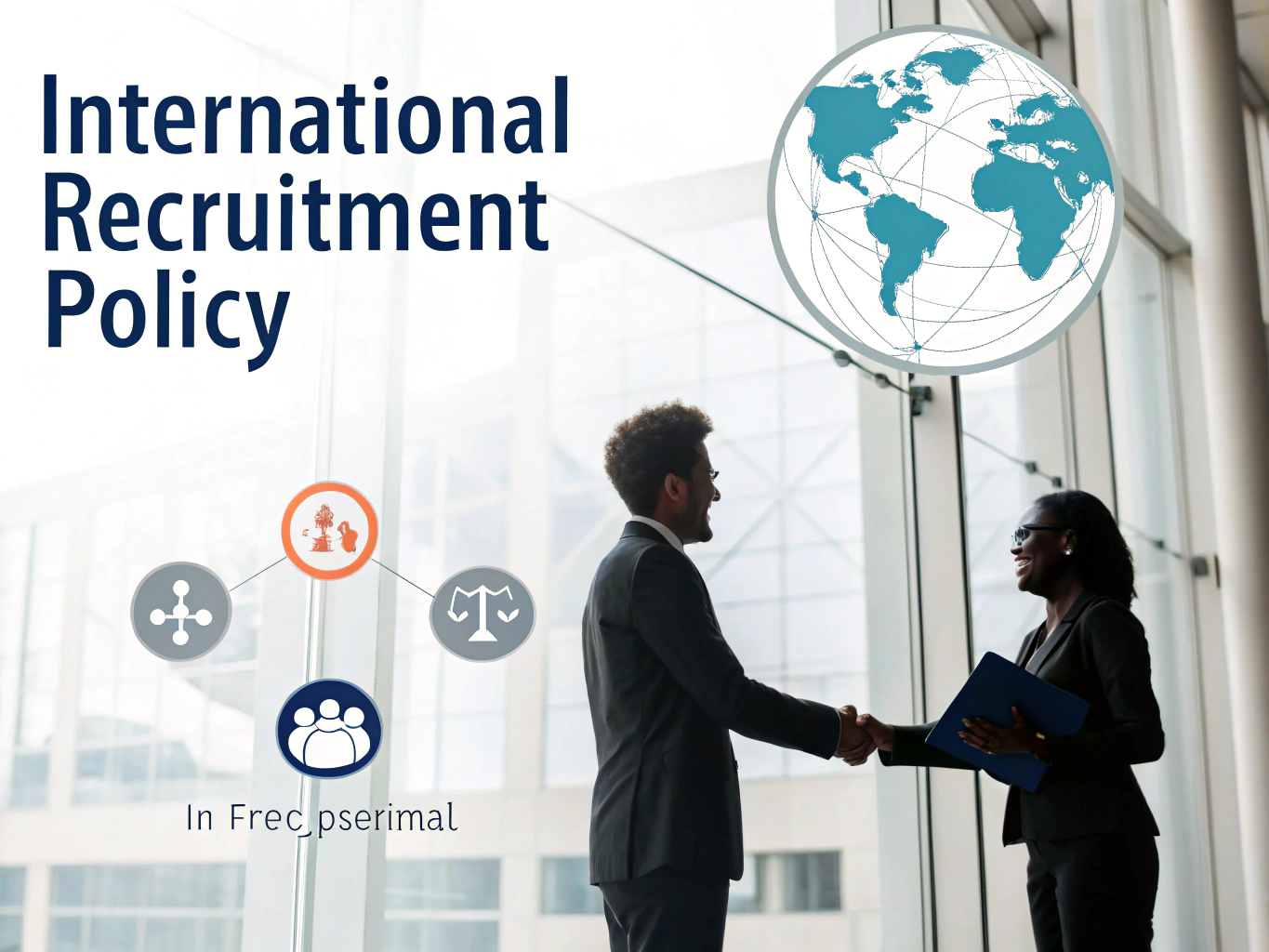Definition
An International Recruitment Policy is a structured framework designed to guide organizations in sourcing, assessing, and hiring talent from outside their home country. This policy ensures that the process is not only efficient but also equitable, legal, and culturally sensitive. In a world where businesses are increasingly global, having a clear international recruitment strategy is essential for attracting the best talent across borders.
Key Components
Understanding the key elements of an International Recruitment Policy will help you navigate the complexities of hiring internationally. Here are some core components to consider:
- Equal Opportunity: Your policy should commit to providing equal employment chances for all candidates, regardless of their nationality or background. For instance, if you’re hiring for a tech role, focus on skills and experience rather than where the candidate comes from.
- Legal Compliance: It’s crucial to be aware of the various local and international laws regarding employment, visas, and work permits. Before you even post a job, ensure that you understand the legal landscape of the countries you are recruiting from.
- Job Advertising and Promotion: Use a mix of local and international channels to advertise job openings. This could include global job boards, local newspapers, and professional networks, ensuring that you reach a diverse pool of candidates.
- Relocation and Immigration Support: Providing assistance to international hires in securing work permits and navigating relocation logistics can make your organization more attractive to potential candidates. For example, consider offering a relocation stipend or a dedicated HR contact to assist with the move.
- Orientation and Integration: A successful onboarding process for international hires is key to their long-term success. This might involve a comprehensive orientation program that introduces them not just to your company culture, but also to local customs and practices.
Importance in the Workplace
Having an International Recruitment Policy is more than just a checkbox; it’s about creating a diverse and inclusive workplace that reflects the global market. For example, if your company is expanding into new territories, hiring local talent can provide invaluable insights into consumer behavior and cultural nuances. Furthermore, a well-defined policy helps you avoid potential pitfalls like legal issues or cultural misunderstandings, which can arise when hiring internationally without proper guidelines.
Best Practices
Implementing an effective International Recruitment Policy requires strategic planning and execution. Here are some best practices to keep in mind:
- Conduct Cultural Training: Before beginning the recruitment process, ensure your HR team and hiring managers are trained on cultural differences and sensitivities. This understanding can greatly enhance your ability to connect with international candidates.
- Standardize Your Process: Develop a consistent selection process for international candidates that mirrors your domestic hiring procedures. This might include standardized interview questions and evaluation criteria to ensure fairness.
- Utilize Technology: Leverage recruitment software that can manage applications from multiple countries and help streamline communication with candidates around the globe. This boosts efficiency and helps maintain a positive candidate experience.
- Gather Feedback: After the hiring process, solicit feedback from both international hires and hiring managers. This can provide valuable insights into what worked and what areas need improvement for future recruitment efforts.
- Stay Informed: Keep up-to-date with changes in immigration laws and international labor regulations that could affect your hiring practices. Regularly reviewing your policy ensures it remains compliant and effective.
Legal Considerations
When crafting your International Recruitment Policy, it’s essential to include legal aspects to protect your organization. Be aware of labor laws in both your home country and the countries from which you’re recruiting. This includes understanding visa requirements, work permit regulations, and non-discrimination laws. Consulting with legal experts or HR professionals who specialize in international employment law can help you navigate this complex landscape and ensure compliance, ultimately protecting your organization from potential legal challenges.
Conclusion
Understanding and implementing an International Recruitment Policy is crucial for any organization looking to thrive in the global marketplace. By fostering a structured approach to international hiring, you not only enhance your talent acquisition strategy but also promote a diverse and inclusive workplace. Remember that the world is full of talent waiting to be discovered, and with the right policies in place, you can successfully tap into this valuable resource.




